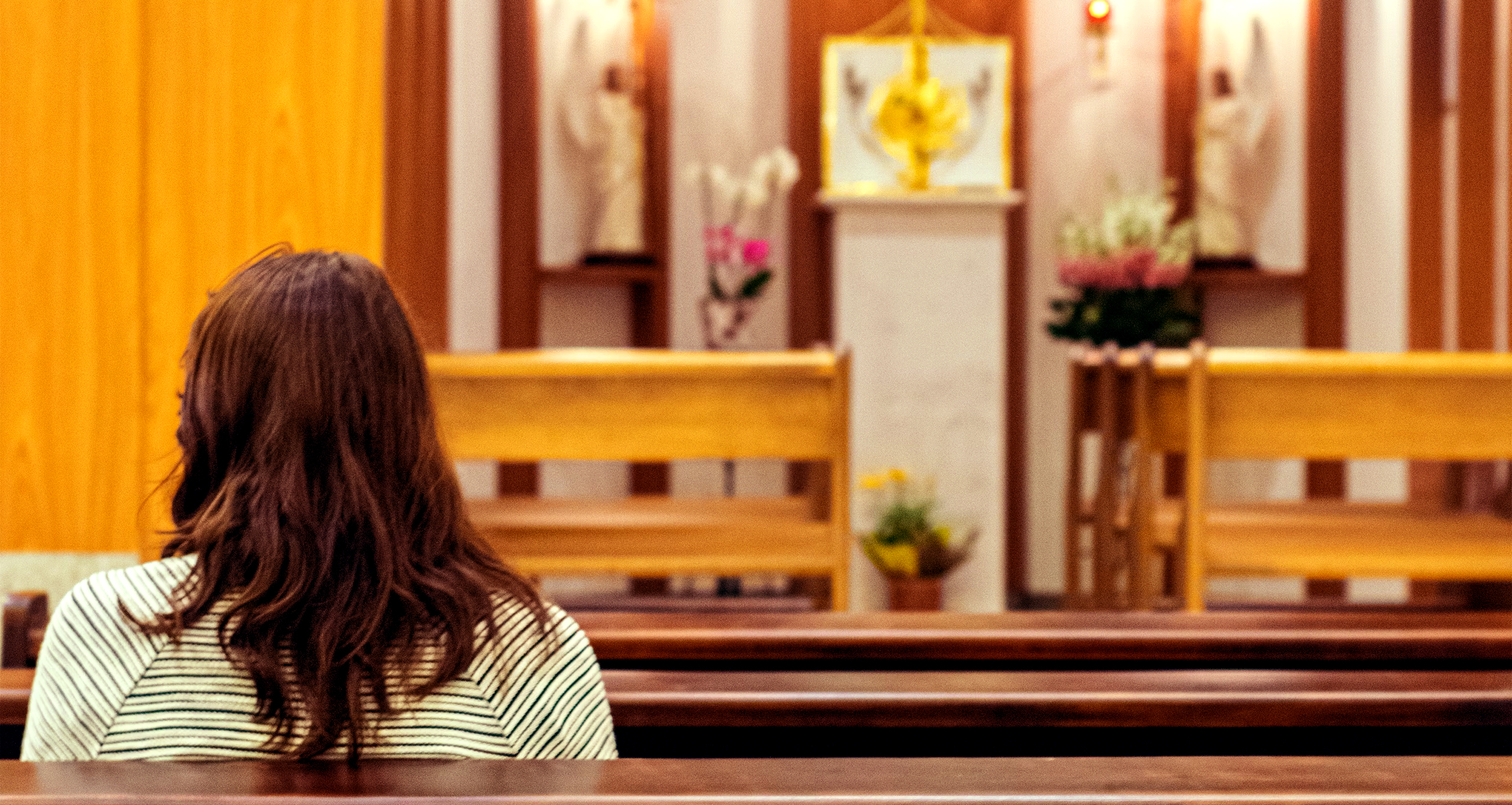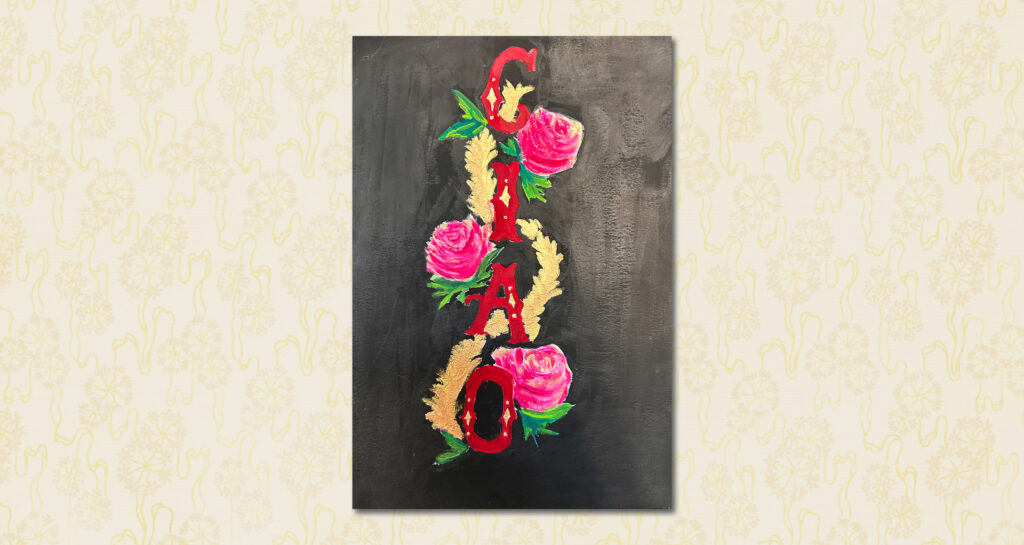Finding your vocation before it finds you
Published on April 13, 2025

I’ve always been told I’m mature, so college was the first time I acted my age. I dressed up with friends for parties and concerts. I laughed and giggled during endless sleepovers with roommates. I visited friends far away and made friends close to home.
Somewhere between last summer and now, an emotional switch flipped. I’m grateful to be in college and graduating next year, but I also yearn to start my life after undergrad. I felt a strong sense of belonging at college, but now I’m on the cusp of something new.
I can tell because my friends are experiencing major life milestones. Henry just proposed to his girlfriend Grace. Summer and Cal’s firstborn is due in May. Elena is applying to religious orders, and I’m over here trying to discern what to eat for breakfast.
I haven’t even stepped foot into the next phase of my life, and can’t help but feel I’ve already fallen behind.
When I am overwhelmed and frustrated in the waiting, I remember that this time is meant for cultivating myself and my relationship with God. My vocation will follow.

Grow your relationship with the Trinity
My ultimate fulfillment and happiness stems from my relationship with God. No matter what career I pursue, who my friends are or even how I feel about myself, takes away my inheritance as a daughter of the Father. God created me for the sake of my own existence, so I may love Him and He may love me. This relationship will last for my entire life.
“The dignity of every human being and the vocation corresponding to that dignity find their definitive measure in union with God…For no human being, male or female, created in the image and likeness of God, can in any way attain fulfillment apart from his image and likeness.”
– John Paul the Second, Mulieris Dignitatem
It doesn’t matter whether I feel I am behind. It doesn’t matter what my friends are accomplishing. God has created a unique path just for me. All I have to do is take the next step.
Practical advice
You start a relationship with God by attending Mass, sitting in front of Jesus face-to-face in adoration, and praying consistently. Praying with the Gospels changed my life. Reading Jesus’ own words and learning about His actions helps us know Him. Journaling in prayer is my favorite. I’ve noticed that when I am honest, God actually speaks and shows up for me. Don’t hide!

Prioritize your personal healing
Get right with yourself and God. No matter your vocation, we all carry wounds from childhood that shape how we respond when we’re triggered. These emotional echoes can lead us to act out in ways that don’t reflect who we truly are. But by growing in self-awareness and being honest with ourselves, we open the door to deeper healing. This journey not only helps us treat ourselves with greater compassion but also strengthens our relationship with God and helps us love others as they deserve.
Sometimes our reactions feel out of proportion to the moment. For example, a friend doesn’t respond when I greet them, and I immediately feel rejected or unworthy. Rationally, I might know they were just wearing earbuds – but the emotions tell a different story. That’s a wound speaking.
By examining our own behaviors, mistakes, and limiting beliefs, we can begin to untangle the roots of self-doubt and shame that hold us back.
When you become more in tune with your inner world – your emotions and your wounds – you’ll discover greater peace. And with that peace, you’ll be freer and ready to live out your vocation with joy and clarity.
Practical advice
You don’t want to carry your emotional baggage everywhere you go—especially not into your relationships with friends, family, roommates, your future spouse, or community members. We were created for wholeness. Though original sin disrupted that design, we’re not without hope. There are many resources available for healing and growth, from the John Paul II Healing Center to faithful Catholic therapists.

Establish your tastes and talents
Cultivate who you are instead of shaping yourself for a particular vocation. By cherry-picking talents and strengths, you may or may not have, to fit the mold of a vocation you seek, you miss the chance to develop yourself. Instead, you allow yourself to be confined by stereotypes of a role that may or may not be for you.
There are theological identities of daughter, sister, bride, and mother. What you bring to each identity based on your experiences, personality, and interests is unique.
Your own development in and of itself is of great importance to God. Your personality, interests, and talents are evidence of the soul and can be used to glorify God.
Your identity was uniquely given to you by God Himself. How much you nurture your strengths, interests, talents, and inspirations shapes who you are becoming. Without developing our talents now, we may not be prepared to use them in our vocation to come.
“All of God’s action in human history at all times respects the free will of the human ‘I’.”
– John Paul the Second, Mulieris Dignitatem
Practical advice
As a student, I know I have freedom in ways that I won’t later in my life. I try to take advantage of this time by taking salsa classes, sketching and painting with gouache and watercolor, and traveling when I can. Find hobbies that align with your God-given talents and learn all you can about what inspires you!

Practice the cardinal virtues
To develop your whole person means developing your soul too. Our spiritual life is deeply interconnected with our emotional and physical health. A virtue is the habitual and firm decision to do good. Basically, virtues help us live a good life!
The Catechism of the Catholic Church defines the four cardinal virtues below:
- Prudence disposes the practical reason to discern, in every circumstance, our true good and to choose the right means for achieving it.
- Justice consists in the firm and constant will to give God and neighbor their due.
- Fortitude ensures firmness in difficulties and constancy in the pursuit of the good.
- Temperance moderates the attraction of the pleasures of the senses and provides balance in the use of created goods.
The virtues can help me persevere when life gets challenging and help me to make healthy decisions for my mind, body and soul.
In my early 20s, I’m creating long-lasting virtues and habits that can last a lifetime. When I procrastinate on my homework, I fall behind, feel stressed, and end up making more work for myself. If I don’t learn to be more proactive about completing my work on time, that bad habit or lack of virtue impacts my chances of making deadlines at work.
For me, practicing the virtues means saving my money for books rather than splurging on that overpriced latte twice a week. When I get a restful night’s sleep, wash my face, and exercise, I feel energized to attend class and spend time with friends and family.
These habits will give me the tools to overcome challenges I face in the future and mitigate the chance of bad things happening.
Practical advice
One day, I started making my bed every morning and now, it’s second nature. A virtue and the habits that accompany it are achievable. The more you do something, the less you think about it, the easier it becomes!

Serve others
One of my biggest temptations is to believe that my life truly begins only when I discover my vocation. I tell myself, “Once I figure it out, then I’ll be ready for the great mission God has planned for me.” But the truth is, I’m called to act now.
“Christ, the ‘Servant of the Lord,’ will show all people the royal dignity of service, the dignity which is joined in the closest possible way to the vocation of every person.”
Greatness isn’t found in a particular state of life—it’s found in the everyday, often mundane things we do to glorify God. (Psst… this is what sainthood looks like.)
“Man, who is the only creature on earth which God willed for himself, cannot fully find himself except through a sincere gift of self.”
— Gaudium et Spes, No. 24
The real danger is wasting our lives waiting for something to begin. When we offer our gifts and talents to others, we don’t just prepare for our vocation—we live it. That’s how we build meaningful relationships and make a real impact in our communities.
Practical advice
A mission trip or volunteering is not a requirement to serve, although those are great options. These options help you grow communication skills, network with friends and mentors, and even foster independence and virtue. Being of service also means being a good friend and helping out with the dishes. It’s in the little things.

Find a support system
Be a girl’s girl and find your bridesmaids, seriously. My friends have enriched my life so much. They offer encouragement, teach me life lessons, and bolster me when I’m feeling down. They bring laughter into my life when I’ve needed it most and aren’t afraid to call me out either!
Having solid relationships can determine your morals, your thoughts, and where you end up in life. By surrounding yourself with like-minded people, you are that much closer to accomplishing your goals and being your most authentic self!
Practical Advice
To find good friends, you have to be a good friend. Don’t be afraid to attend events alone and introduce yourself to others! A relationship goes both ways. If equal effort isn’t being given or you find yourself in a toxic environment or making bad decisions with certain friends, it’s okay to step back.

Pursue excellence
Excellence, according to FOCUS, is the ability to give the best of ourselves in our vocation and daily responsibilities.
I am a student, daughter, sister, friend, granddaughter, and intern. Here’s how I can pursue excellence in these areas by living out the vocations I am given now.
- Student: Attending all my classes even though I have a severe case of senioritis.
- Daughter: Obeying my mom and helping around the house when I am home.
- Sister: Listening to my younger sister’s middle school drama.
- Granddaughter: Calling my grandparents and updating them about my life.
- Intern: Working hard on articles and clocking my hours honestly.
- Friend: Texting back promptly and supporting my friends in their interests.
Excellence is not perfectionism. I know because I used to be the queen of overcommitting. One semester, I worked three jobs while taking 17 credits, attended bible study, wrote for the school newspaper, and was the co-president of a student club.
I was afraid of failure and thought people only loved me when I performed well. I only liked myself when I performed well. That semester, I did not have time to do things that brought me joy. I ended up making mistakes at every single job. I was burnt out from unrealistic expectations and learned my lesson the hard way.
Excellence gives you the freedom to be yourself everywhere. I’m the same person in the pews on Sunday as I am hanging out with friends. I can be myself without fear of impostor syndrome or leading a double life.
Practical advice
I often am tempted to “rest” by doom scrolling or spending time alone listening to music. Consuming media can be informative and entertaining; however, when I am unable to say no to anything, I become enslaved by it. Practicing self-denial and discipline helps me avoid spending time on things that don’t make me a better person or get me closer to heaven.



